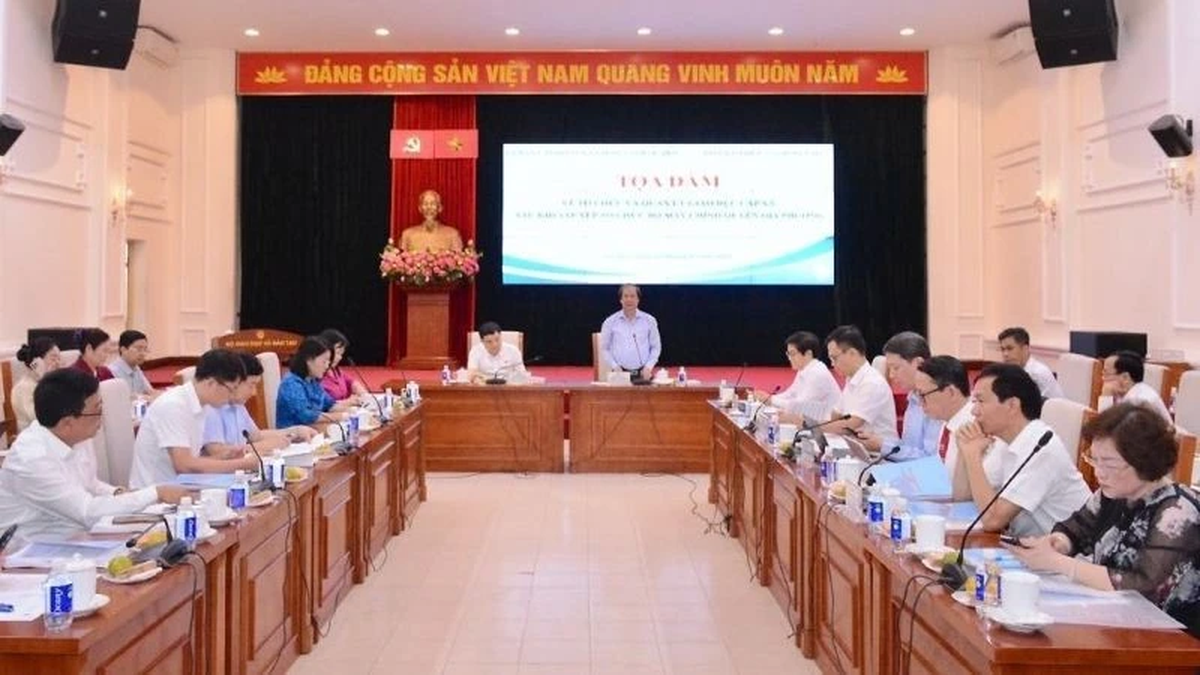The above content was commented on by delegates when giving comments on the draft Law on Corporate Income Tax (amended) taking place today (May 12).
Delegate Dao Chi Nghia ( Can Tho delegation) was concerned about the fact that many businesses deliberately reported losses to evade taxes, and when discovered, the authorities did not handle the situation promptly. He suggested that the drafting agency study and supplement regulations on criteria and conditions for determining loss-making businesses, using that as a basis for deducting from taxable income, ensuring objectivity, transparency, fairness, and compliance with the law, avoiding exploitation for tax evasion and profiteering.
To avoid businesses using tricks to intentionally cause losses, Mr. Nghia recommends adjusting the loss transfer period appropriately so that the loss transfer regulations are truly effective in supporting businesses.

Delegate Dao Chi Nghia speaks at the hall. (Photo: Quochoi.vn)
Discussing this issue, delegate Trinh Thi Tu Anh ( Lam Dong delegation) also commented: The current Enterprise Law does not stipulate that enterprises that have suffered losses for several consecutive years must declare bankruptcy. This leads to a situation where many enterprises, despite having suffered losses for 5-7 consecutive years, continue to invest in production.
Meanwhile, tax authorities must wait until businesses have revenue before they are obliged to pay corporate income tax. Therefore, delegates proposed to revise "businesses with losses can carry their losses over to the following year, and this loss can be deducted from taxable income".
Delegate Pham Thi Thanh Mai ( Hanoi delegation) said that, for high-tech and innovative enterprises, the time for transferring losses should be increased more than in the draft law. However, the National Assembly needs to set out the principles for how much to increase, the rest is up to the Government to decide depending on the specific stage and report to the National Assembly Standing Committee for consideration and approval, ensuring timeliness.

Minister of Finance Nguyen Van Thang gave an explanation speech. (Photo: Quochoi.vn)
Speaking at the end of the session to explain and receive opinions from National Assembly deputies, Finance Minister Nguyen Van Thang said that this draft law is reasonably calculated to not affect the overall preferential policies currently applied, but also has new outstanding preferential policies to support and facilitate businesses to expand their investment activities.
At the same time, the drafting agency proactively reviewed international experience as well as trends in applying preferential policies of countries around the world, especially in the context of having to implement Pillar 2 on global minimum tax (setting a global minimum corporate tax rate of 15% for multinational companies).
“In the process of implementing Pillar 2 on global minimum tax, we must calculate and advise the Government on how to implement support for businesses, as well as research methods for indirect support, ensuring that we do not violate the commitments of international agreements that Vietnam participates in,” the Minister stated.
The Minister affirmed that, taking into account the opinions of National Assembly deputies, the drafting agency will continue to review specialized laws with provisions on corporate income tax, including the laws passed by the National Assembly at the last session of 2024 as well as the laws expected to be submitted to the National Assembly for approval at this session, the last sessions of the year with the overall general incentive policies such as the Investment Law, the Law on Support for Small and Medium Enterprises, etc.
Source: https://vtcnews.vn/dai-bieu-quoc-hoi-nhieu-doanh-nghiep-co-tinh-bao-lo-de-tron-thue-ar942814.html



































































































Comment (0)